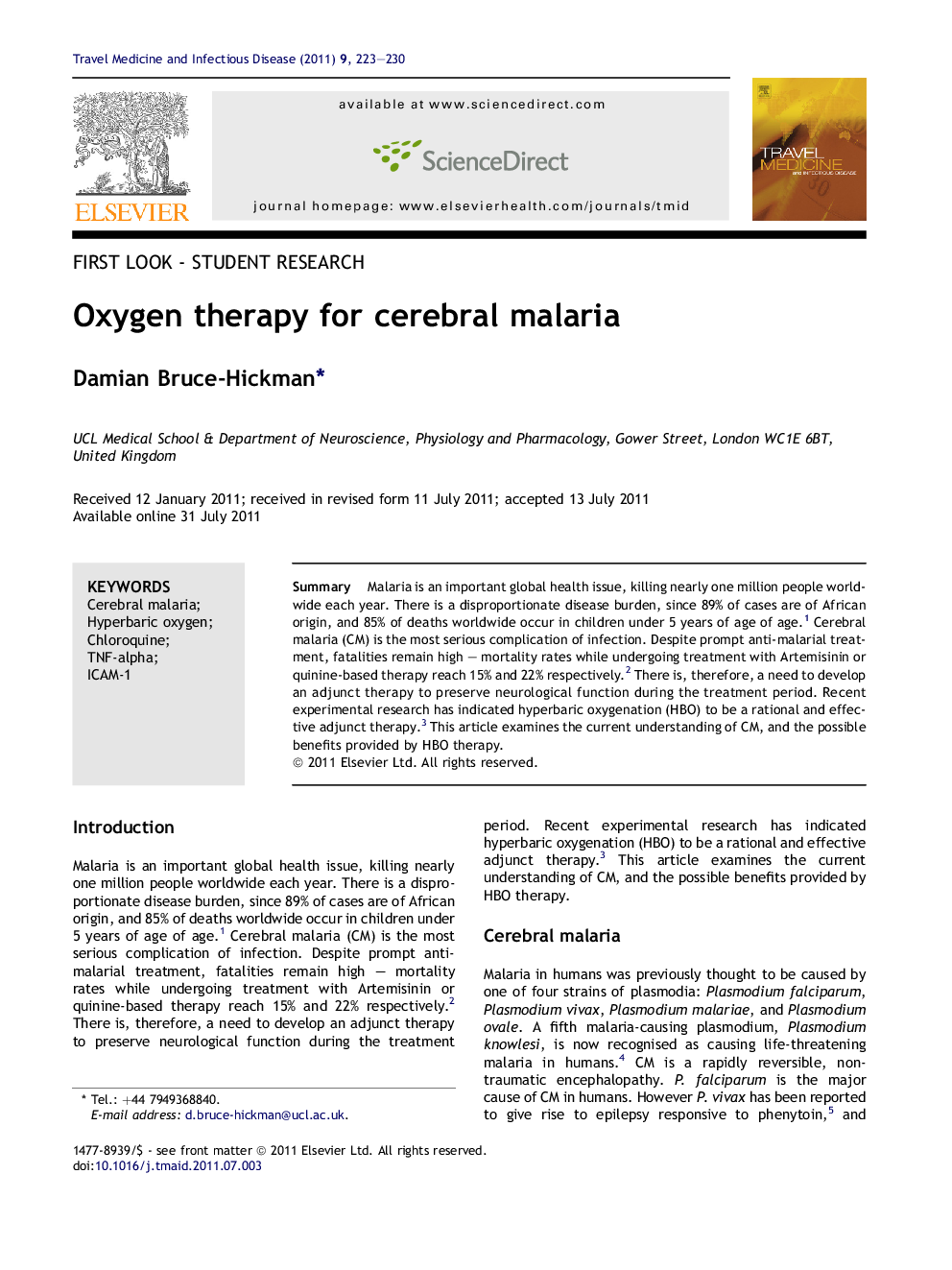| Article ID | Journal | Published Year | Pages | File Type |
|---|---|---|---|---|
| 3393147 | Travel Medicine and Infectious Disease | 2011 | 8 Pages |
SummaryMalaria is an important global health issue, killing nearly one million people worldwide each year. There is a disproportionate disease burden, since 89% of cases are of African origin, and 85% of deaths worldwide occur in children under 5 years of age of age.1 Cerebral malaria (CM) is the most serious complication of infection. Despite prompt anti-malarial treatment, fatalities remain high – mortality rates while undergoing treatment with Artemisinin or quinine-based therapy reach 15% and 22% respectively.2 There is, therefore, a need to develop an adjunct therapy to preserve neurological function during the treatment period. Recent experimental research has indicated hyperbaric oxygenation (HBO) to be a rational and effective adjunct therapy.3 This article examines the current understanding of CM, and the possible benefits provided by HBO therapy.
